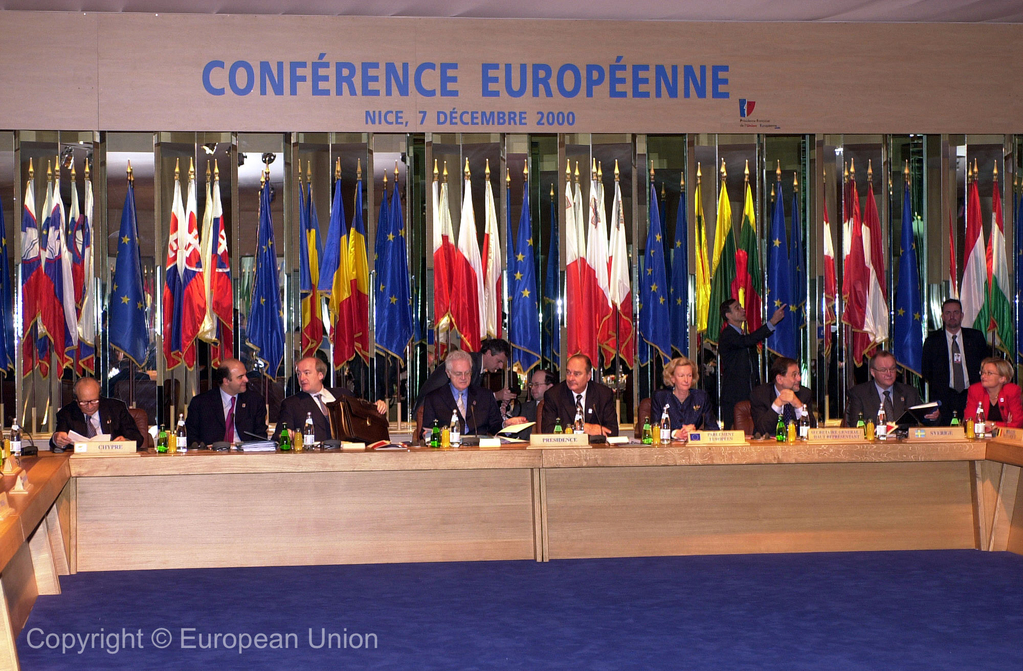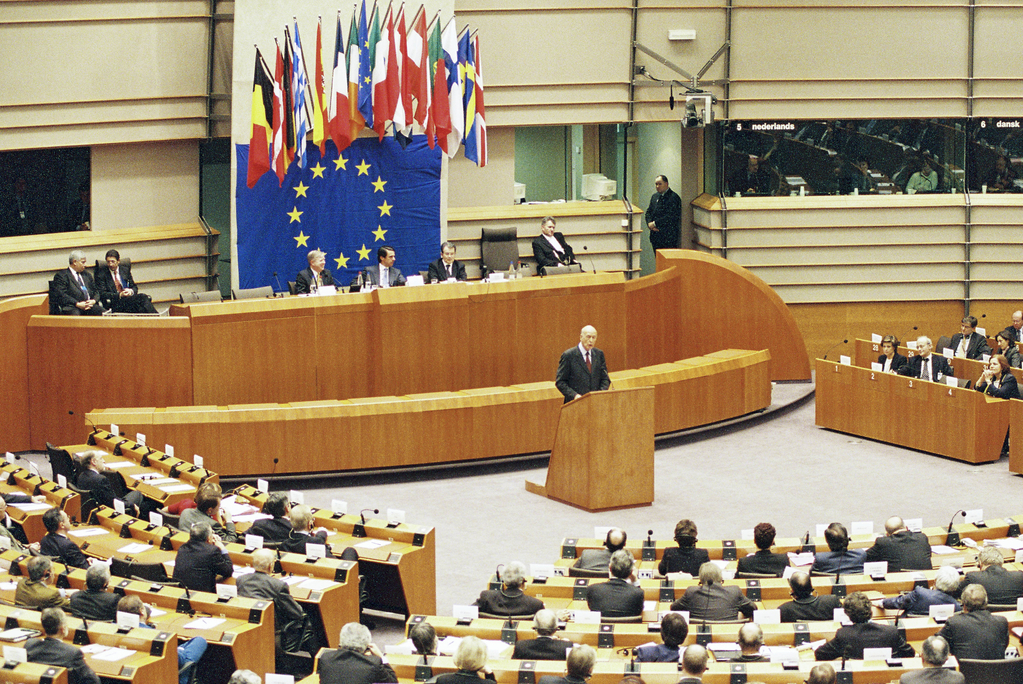Since its establishment, cooperation with other institutions has been a fundamental part of the European Parliament’s work. The range of this cooperation is quite diverse, ranging from working with the heads of other EU-level institutions, to with the governments of Member states, Parliaments of states outside of the EU and more. The Interinstitutional Cooperation Fonds are therefore an invaluable source of information for anyone interested in learning more about the work of the Parliament with other institutions and understanding its role in a European and global context.
What's in the Archives
In general, these Fonds contain the working documents, meeting files, minutes, correspondence, notes and additional documents of the groups associated with Parliament's interinstitutional cooperation. They therefore provide information on the composition and work of these parliamentary bodies.
Multilateral parliamentary assemblies
The fonds of multilateral parliamentary assemblies document the establishment, development and activities of the bodies set up for parliamentary cooperation between Member States and a group of African, Caribbean and Pacific countries. The documents provide information on the composition, work and activities of the parliamentary development cooperation bodies set up from 1958 to 2000 for the management of the following agreements and conventions:
• Implementing Convention and Conference of the European Parliamentary Assembly with the Parliaments of African States and Madagascar (1958-1963)
• Yaoundé Association Conventions with the Associated African and Malagasy Countries (1964-1975)
• Arusha agreements with Kenya, Uganda and Tanzania (1969-1975)
• Lomé Conventions with ACP countries (Africa, Caribbean and Pacific) (1975-2000)
Committee of the Four Presidents (1951-1967)
The Committee of the Four Presidents was set up following the signature of the Treaty of Paris (18 April 1951) establishing the European Coal and Steel Community (ECSC). This committee was thus a body specific to the ECSC, formed by the President of the Court of Justice, the President of the High Authority, the President of the Common Assembly (which became the Parliamentary Assembly in 1958) and the President of the Special Council of Ministers. The Committee remained in office until the Treaty of Brussels entered into force on 1 July 1967. The last meeting took place on 30 June 1967.
The main part of the fonds is working group documents and meeting files, consisting of minutes, correspondence, notes and additional documents relating to the various issues discussed. There are recurring topics such as staff management, the situation of commitments and expenditure, annual reports and budgetary matters.
Board of Heads of Administration
Since their creation, the European institutions have cooperated at an interinstitutional level with the Committee of Presidents and the College of Heads of Administration, which held its first meeting on 3 October 1958 chaired by the Registrar of the Court of Justice.
The participation of specialised Parliament officials in these meetings is the background to the preservation of these documents in the Archives. The decision-making process within the College is based on consensus and in particular the provisions of the Staff Regulations which have been the subject of regular consultation since the first meeting of which documents are kept, held on 8th November 1961. Several preparatory committees on statutory, budgetary or social matters could report to the College, agree on an update or adopt a common practice.
Consultation of these files is essential in order to obtain information on the application of the Staff Regulations (competitions, training, litigation, allowances, statistics, mobility, insurance).
Intergovernmental conferences
Meetings between Member States have historically been set up specifically to amend the Treaties. The meetings of the preparatory groups were joined by representatives of the European Commission and the Parliament, which is involved in the work of these conferences through delegations and working groups.
The series which have been kept in the European Parliament Archives are:
• 1985 Intergovernmental Conference preparatory to the Single Act (1986)
• 1991 Intergovernmental Conference preparatory to the Maastricht Treaty (1992)
• 1996 Intergovernmental Conference preparatory to the Treaty of Amsterdam (2000)
• 2000 Intergovernmental Conference preparatory to the Treaty of Nice (2001)
The majority of the fonds is made up of documents from preparatory group meetings, documents from meetings of European Parliament delegations, contributions from governments and institutions.
 European Conference in Nice, 7-9 December 2000 © European Union
European Conference in Nice, 7-9 December 2000 © European Union
Convention on the Future of Europe
The Convention on the Future of Europe or the European Convention was established as a provisional institution following the Laeken European Council in December 2001, with the aim of holding a debate on the future of the EU and with a view to convening an intergovernmental conference. The European Parliament has kept copies of the documents of the main bodies of the Convention, the Praesidium and the Secretariat and also of the documents of the Parliament’s delegation to the Convention and of the working groups.
 Visit of Council President in-Office for the Convention on the Future of Europe © European Communities 2002
Visit of Council President in-Office for the Convention on the Future of Europe © European Communities 2002